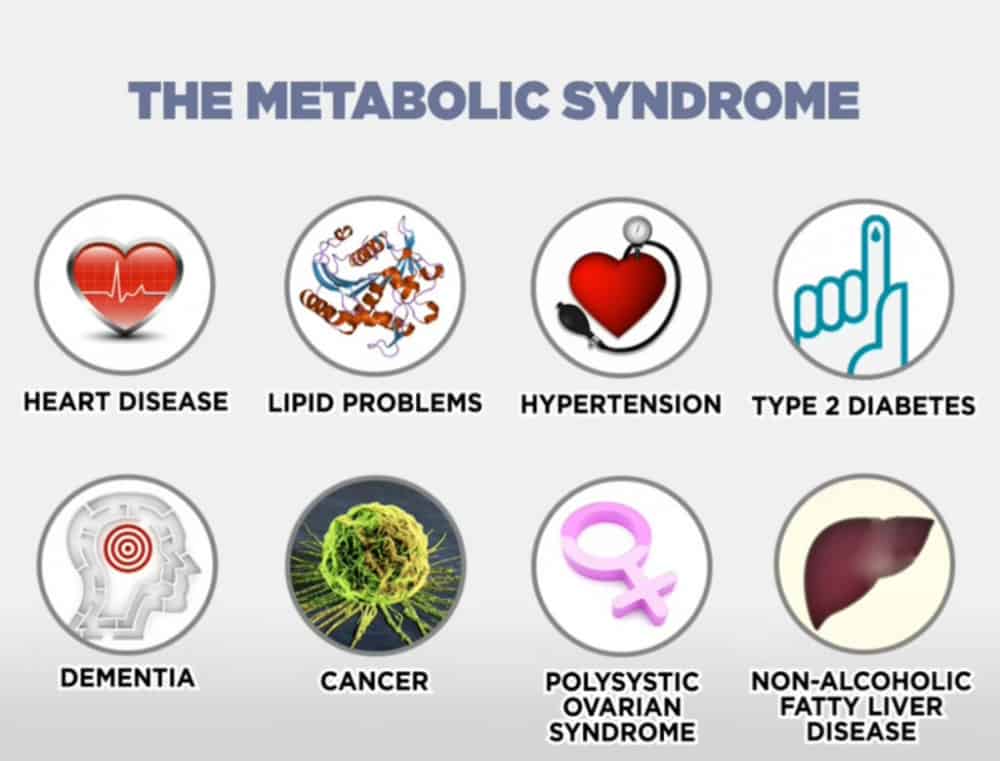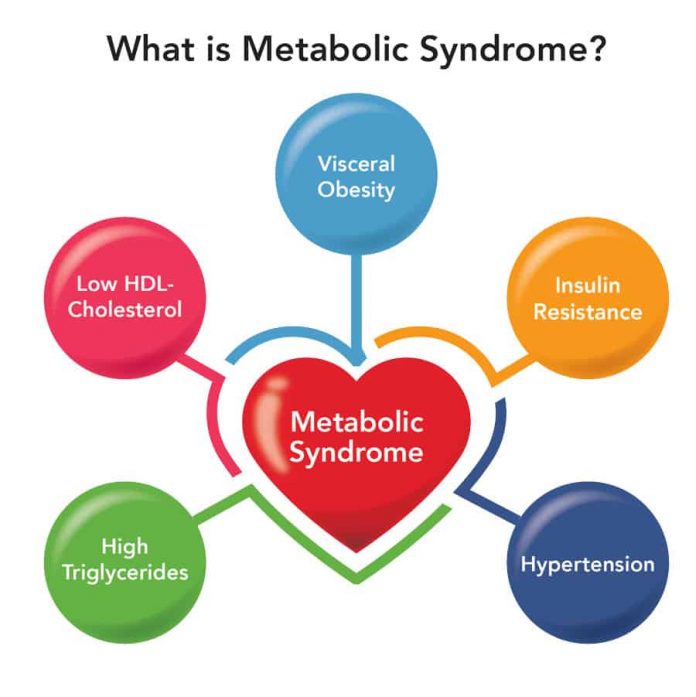More than 1/3 of American adults now have metabolic syndrome. Studies have shown that people with certain combinations of risk factors are more likely to experience chronic and potentially deadly health conditions related to the cardiovascular system. Learn more about metabolic syndrome risk factors and the health conditions associated with this major health concern.
Metabolic Syndrome Diagnosis

According to the American Heart Association’s online article entitled “About Metabolic Syndrome,” a senior who has three or more of the following findings would meet criteria for metabolic syndrome:
- Abdominal obesity with waist measurement ≥ 40 inches in men or ≥ 35 inches in women
- Triglyceride level ≥ 150mg/dl
- HDL cholesterol level ≥ 40mg/dl in men or ≥ 50mg/dl in women
- Hypertension (high blood pressure) ≥ 130/85 (where either or both numbers are elevated)
- Fasting blood sugar ≥ 100mg/dl
- Insulin resistance or glucose intolerance
Older adults who are physically inactive more than double their chances of developing metabolic syndrome. Eating a diet in which more than 60% of calories come from carbohydrates and putting on excessive body fat increases the likelihood that a person will develop or already has metabolic syndrome. Some people are more genetically predisposed to develop the syndrome than others.


















